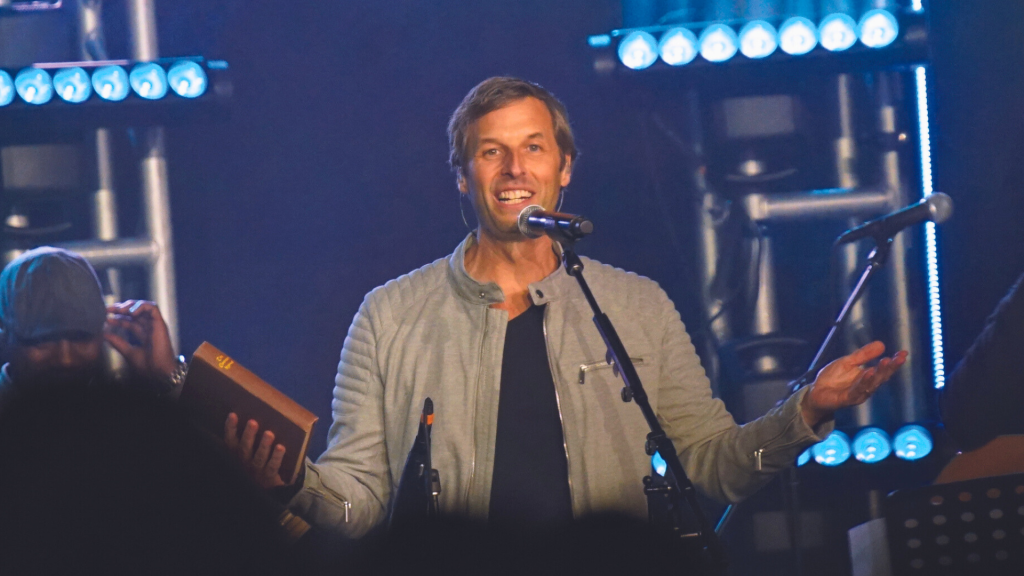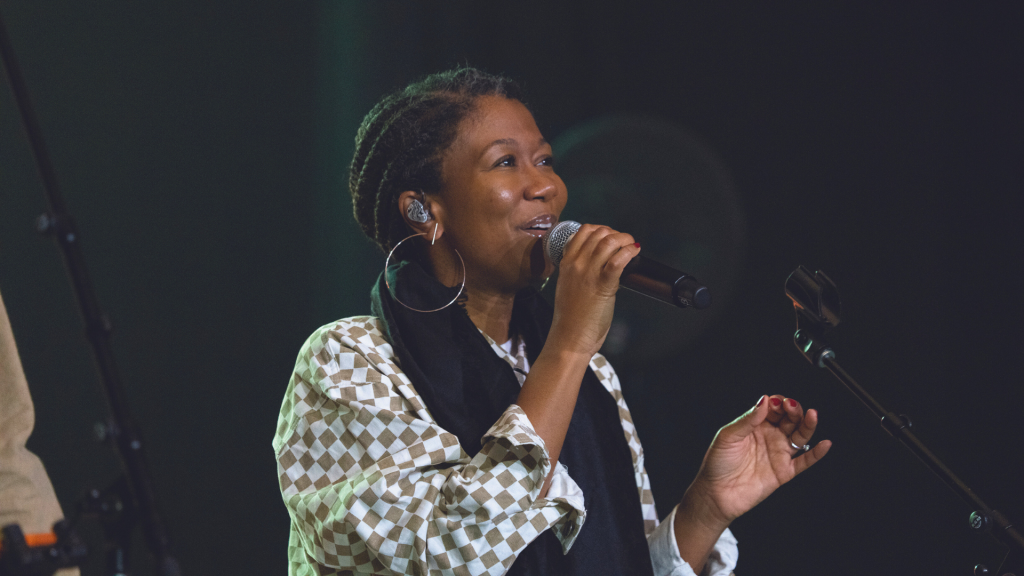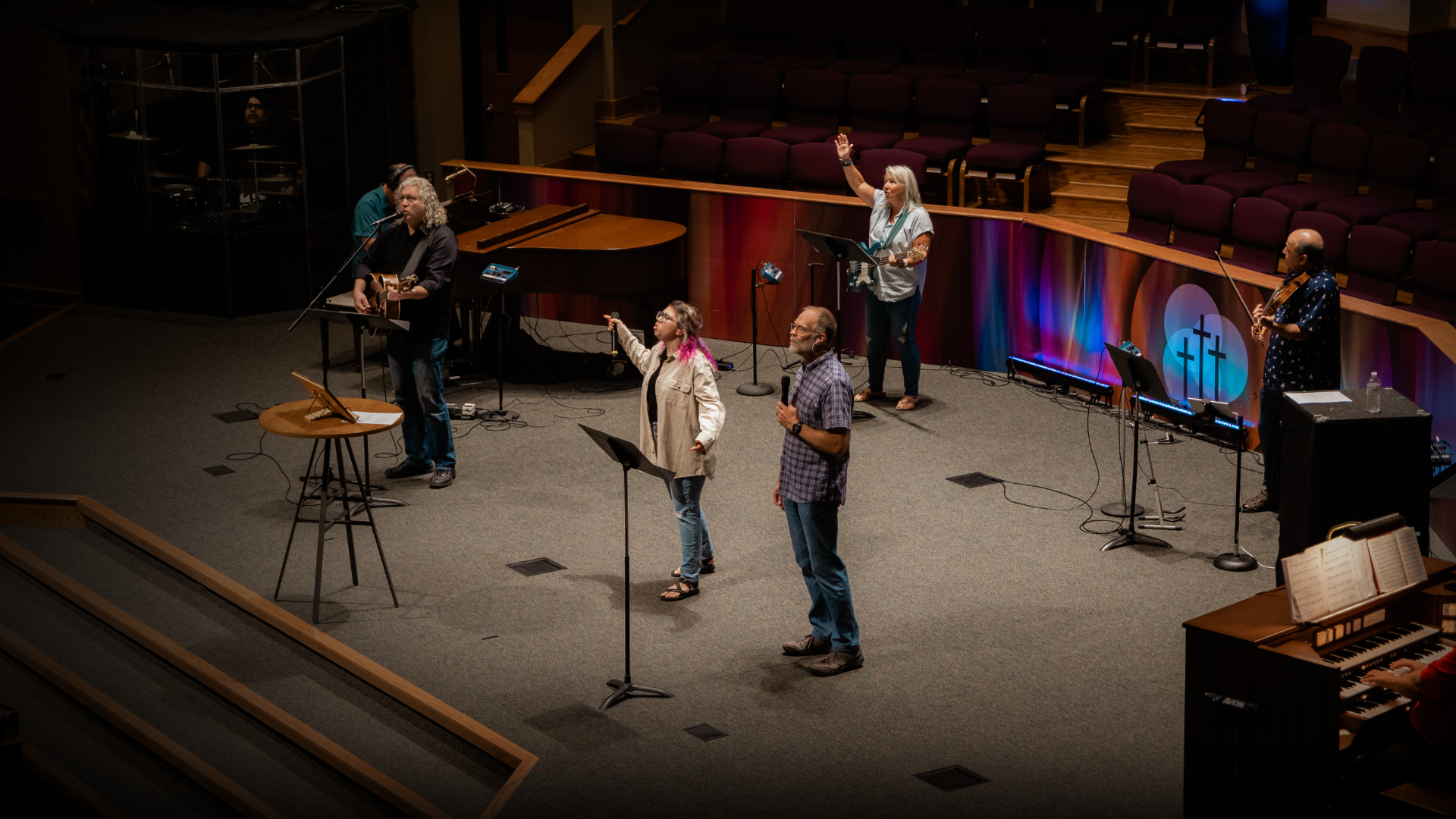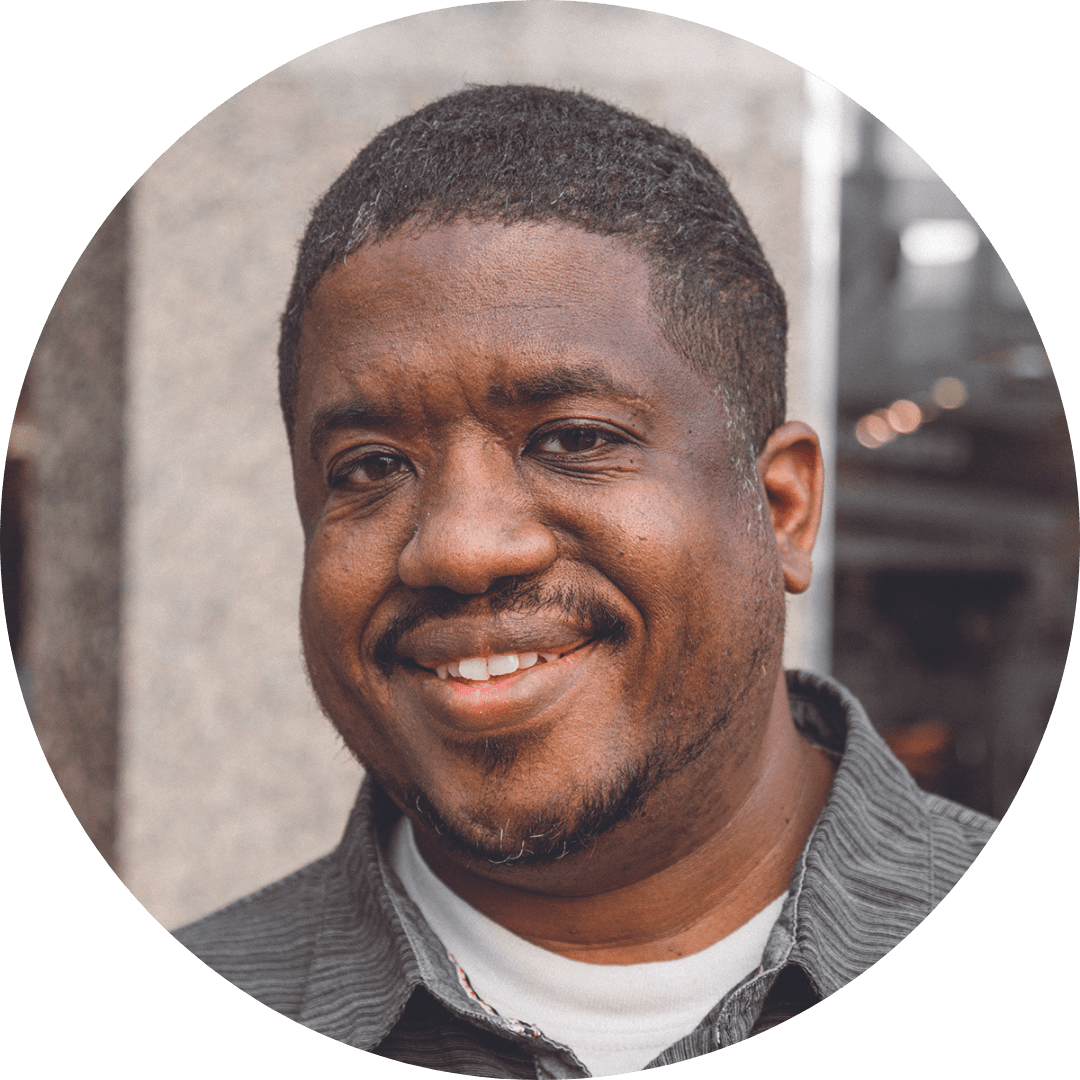The Changing Landscape of Worship Music
As part of our deep dive into worship music, Missional storyteller Jelani Greenidge spoke to Matt Lundgren and Sharon Irving Cochran, who have led worship at Covenant gatherings like Midwinter and the Annual Meeting, to ask about their experience as full-time professional musicians, both in and out of church settings. We asked about the changes they’ve observed in worship music and Christian music more broadly. For purposes of length and clarity, these interviews were edited into essay format.

MATT LUNDGREN
My parents and grandparents attended Covenant churches, and I grew up at Bethany Covenant Church in Berlin, Connecticut, where I was confirmed and became a member. Then I went to North Park for undergrad. While I was there, my parents helped plant Deer Grove Covenant Church in Palatine, Illinois, and I first felt a call to worship music in that season.
Most churches in New England during the 1970s, ’80s, and ’90s were very traditional. My formative years were spent singing hymns in choir robes with a pipe organ. Coming to North Park and experiencing the worship ministry there was eye-opening. I’d only ever sung songs out of a hymnal, so I was confused. The lyrics were written on transparencies on an overhead projector, and I’d wonder, “How does everyone know how these songs go?”
When I came back to North Park to earn my MDiv, one of my mentors at the time, Paul Ard, helped me to learn that being a worship leader was not simply leading songs, but using worship as a tool to pastor people.
As I reflect over the last 25 years, a lot has changed. When I started out and was invited to be on the Covenant Worship Commission—just after the blue hymnal had been published—I was still using hymnals in my worship planning even though much of my music was contemporary. There hasn’t been a new hymnal since then, in part because the demand isn’t there. Hymnals were useful for resourcing many of the songs, but now there are so many other ways to resource that music. So, there are some big practical differences between then and now.
That said, I believe the most important worship resource is wisdom. Having a mentor is great, but I’ve also been mentored by people I’ve never met through books, conferences, or learning about how wiser people than me think about things. Often pastors would ask me, “I don’t know anything about worship music. How can I help my worship leader?” My response is, they may not know about music, but they know a lot about leadership, discipleship, and theology.
Music styles have changed too. In the ’90s you had the kind of anthem rock, U2 or Radiohead sort of style, which then evolved into a Coldplay sort of thing. You could hear their influence in a lot of worship music. Now there’s a blending into more dance pop stuff, which sometimes works great in conferences but maybe not as much in church environments.
The biggest change is probably how worship leaders approach the idea of relevance. Sometimes “relevance” is a dirty word. Some people say, “Just preach and focus on the Bible and don’t worry about being relevant.” In general, I think that’s true. But as I read it, in the Sermon on the Mount Jesus was intentional about being relevant to the crowd around him. That crowd was very familiar with the Old Testament, so when he said, “You’ve heard it said…but I tell you,” over and over, that was him being relevant. He was connecting with the questions that his audience was asking.
Twenty-five years ago, our attempt at relevance was asking, “How do we make what happens in the church sound like what happens outside the church?” But now, doing rock music in church doesn’t really scratch that relevant itch. Now, it has little to do with how it sounds and more to do with the content. Relevance is, “Is what’s happening inside the church walls relevant to what’s happening outside those walls?” One way to address that is to ask, “Are you singing songs completely devoid of the questions society is asking today or the needs people have?”
I had a songwriting session with the talented worship leader and songwriter Audrey Assad. After every song she wrote, she liked to ask, “Could this song be sung in a worship experience by a refugee or a displaced person?” That’s not the only perspective to look through, but if we’re not careful, we can write songs that may communicate theological ideas that we don’t intend, or that might be reinforcing certain perspectives that fail to address significant needs in our country and in our world. We need to be asking, “Is this connecting with the questions people are asking and the things that our communities are desperate for?”
At my core, I want to hear a worship leader earnestly invite people into the presence of God. I truly believe that Jesus doesn’t just have the answer, Jesus is the answer. We need to be writing songs that communicate that.

SHARON IRVING COCHRAN
I grew up in a small Baptist church that my grandfather pastored. He was an activist in the community, marched with Dr. King, and was a phenomenal preacher. I was first introduced to North Park through a program that was recruiting inner city youth.
Once I started there, it became one of the most spiritually formative times of my life. It’s where I discovered my voice as a worship leader. About nine years ago, I appeared on the NBC competition show America’s Got Talent, and it was a surreal experience. Growing up, I didn’t watch those kinds of shows. I thought they were all rigged, and I didn’t think normal people could get on those shows. But I won the golden buzzer and made it to the semifinals. For a girl who grew up on the south side of Chicago to be at Radio City Music Hall—it was incredible.
I’m an artist who explores both sacred and secular music—I see them as complementary expressions of my identity and values. It can be a challenge to try to pursue both, but while the spaces may differ, the essence remains the same. My album, Bennett Ave., is a collection of songs about what it means to be human and songs about loss and grief and self-care, including a cover of “I Want Jesus to Walk with Me.” It’s a blend of both.
If I’m at a secular event, I’ll inevitably end up doing a worship song or break into a spontaneous worship flow. I remember doing a block party at an outdoor festival where people were drinking and having a good time, and somehow we ended up singing “Break Every Chain.” The Spirit just took over—it was so transcendent. One of my musical heroes is Jon Batiste, who’s a Christian and talks about “the genre of you,” of having no limitations. God’s creativity knows no bounds. I’ve had people tell me that they’re atheists, they’ve been turned off by religion and the church, but somehow, “Through your music I’ve connected to this Being that you sing about.”
Christian music has undergone a significant transformation since my younger days. Some of the topics and themes are little more raw and transparent than, say, back in 2010. When I was growing up, we were doing hip-hop in the church, but it was still new. Now there’s a lot of Christian rap in the mainstream. I think the labels, the boxes we’re put in, are unnecessarily limiting.
Christian music is still segregated—which breaks my heart—but even that’s changing. Artists like Naomi Raine of Maverick City are doing CCM, but because they’re Black they’re put in the gospel lane. And shout out to my crew Common Hymnal. I want to hear more churches singing biblical resistance songs. When all the songs are just from the CCLI top 40, it feels tone deaf. There are genocides and school shootings happening, the world is hemorrhaging and crying out, and we need songs that can address those themes and offer healing.
The joys of being a worship leader or a worshiping artist are deeply fulfilling and definitely outweigh the struggles, but the struggles are still real. Being a Black woman in mostly white evangelical spaces, I feel the most permission and freedom to just show up and be me, in the fullness of who I am in the Covenant. I know God has called me to be a bridge-builder, so I enjoy the challenge of blending an old school hymn with some CCM or traditional gospel. I feel a responsibility to do it well.
Another challenge is navigating the desire for excellence. At Willow Creek there was a certain standard because all the musicians were paid, and we killed it every time. But now working with volunteers, you can’t hold them to the same standard. We do a lot more training and letting folks find their sweet spot. I love empowering the underdog, I’m drawn to them because they don’t see it as a gig. They want to be there.
I have to deal with certain expectations. At the church where I lead, we can still flow in the Spirit. That’s the tradition I come from, you don’t always stick to the schedule, to the script. But when I’m somewhere else, I want to honor the house that I’m in, and remember, “This is how they operate.” But what about how God wants to operate? There’s a tension there to manage. You can create space for that and still honor time limits. There are ways to do that, but they come with years of experience.
Ultimately, we must remember that God is the Creator of the universe, and God lives in us. Break away from the formula and write that song. The church is more beautiful when our expressions are authentic to who God has called us to be.














